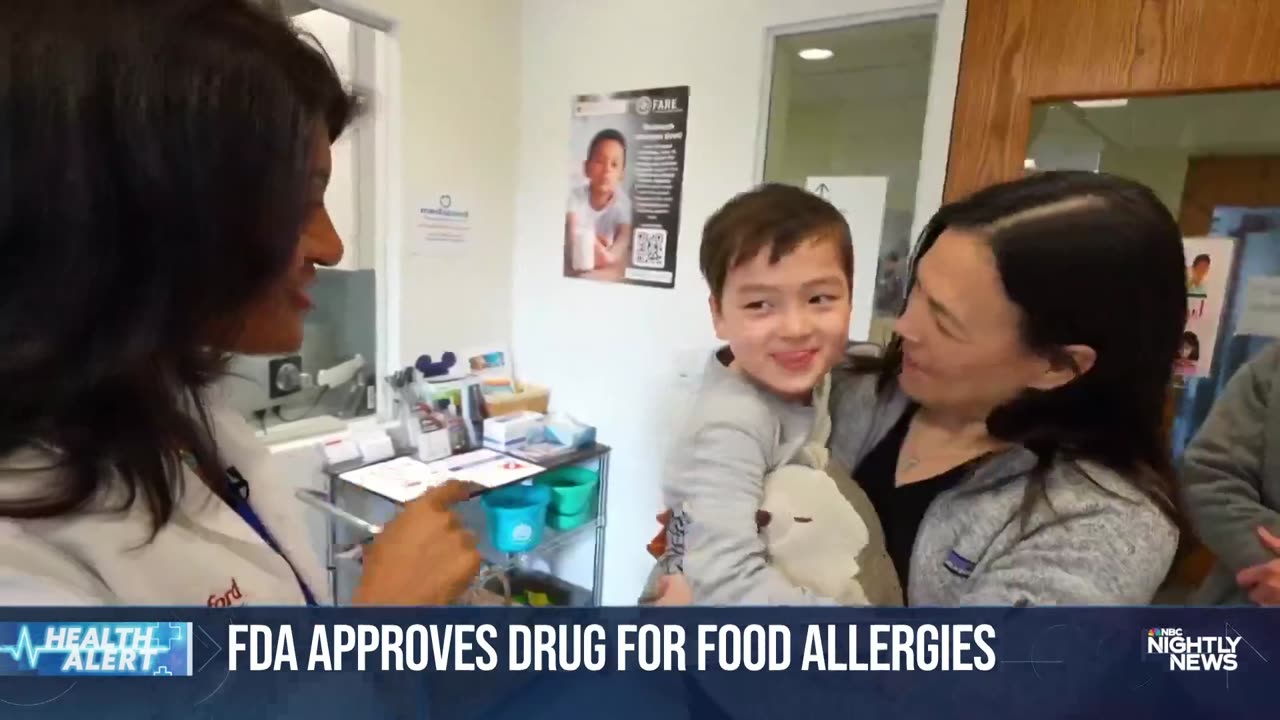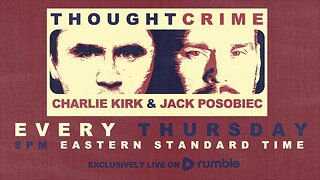Premium Only Content

New treatment for food allergies shows promise
Children with milder forms of peanut sensitivity may be able to overcome their allergy by consuming increasing amounts of store-bought peanut butter, a new study suggests.
All of the 32 children in the study, who received 18 months of this immunotherapy, were able to consume the equivalent of three tablespoons of peanut butter without experiencing reactions, according to the report published Monday in NEJM Evidence.
Parents were advised that this strategy should only be followed under the supervision of an allergist, the researchers cautioned.
Between 1% and 2% of children and adults in the United States have a peanut allergy, according to the American Academy of Allergy, Asthma and Immunology.
Until now, researchers have focused on children with such severe allergies that the tiniest bit of peanut could set off a dangerous reaction, said the study’s lead author, Dr. Scott Sicherer, professor of pediatrics and director of the Elliot and Roslyn Jaffe Food Allergy Institute at the Icahn School of Medicine at Mount Sinai in New York City.
“We thought if we could target children who could consume at least half a peanut with a therapy that was much easier to use, we might be able to get them to the point where they could treat peanuts like regular food,” he said. “We were surprised at how successful we were.”
Sicherer urged parents not to try the therapy on their own, adding “you should talk to an allergist about the process.”
A total of 73 children, ages 4 to 14, were originally entered in the trial, which was sponsored and funded by the National Institute of Allergy and Infectious Diseases. Of the 73, 38 were randomly assigned to get immunotherapy, with the other 35 to continue avoiding peanut protein.
Children who could eat the equivalent of half a peanut without experiencing reactions were able to participate in the study. Those who could eat the equivalent of 20 or more peanuts were excluded.
By the end of the trial, six of the children in the immunotherapy group and five in the control group had dropped out, which left 32 in the immunotherapy group and 30 in the group that continued to avoid peanuts.
In the treatment group, children were started on a ⅛ teaspoon of peanut butter, which gradually was increased every eight weeks. Once the children reached ½ a teaspoon of peanut butter, they were allowed to substitute other foods containing an equivalent amount of peanut protein, such as candies, for the peanut butter.
The peanut protein increases occurred only when children were under the care of an allergist, in case they had a reaction.
Once children were able to eat a tablespoon of peanut butter each day, they were told they did not need to consume it every day, but should consume two tablespoons per week.
None of the children in the immunotherapy group had a severe enough reaction when consuming peanut protein at home to need a shot of epinephrine, and just one needed the medication during a visit to the study site.
-
 LIVE
LIVE
Price of Reason
8 hours agoTrump Cabinet Nominees RFK & Tulsi CONFIRMED! Captain America 4 EARLY Review! Avowed a DISASTER?
1,972 watching -
 2:41:39
2:41:39
TimcastIRL
5 hours agoDOGE IS IN THE IRS, Democrats Launch 14 Lawsuits To STOP Trump & Elon w/Nate Cain | Timcast IRL
129K84 -
 2:04:28
2:04:28
Kim Iversen
7 hours agoTHE SHAKEUP BEGINS! What Will RFK Jr Do In His First Few Days As HHS Secretary?
46.6K58 -
 1:13:58
1:13:58
The Charlie Kirk Show
5 hours agoTHOUGHTCRIME Ep. 73 — Tattoo Vibe Shift? RFK's Day 1 Agenda? Subway Speakerphone Ban?
124K34 -
 26:10
26:10
Mrgunsngear
7 hours ago $2.52 earnedRomanian RPK Review: The Warsaw Pact's M249 SAW
27.3K5 -
 1:52:40
1:52:40
StaleSavage
5 hours agoCrows Nest Gaming Community
61.3K1 -
 51:17
51:17
Man in America
10 hours ago🚨 CCP’s SECRET WAR on America—Military Insider Sounds the ALARM! w/ Matthew Newgent
31.5K18 -
 DVR
DVR
SpartakusLIVE
7 hours ago#1 HACKER gets UNBANNED || The MASSES Rejoice, The Accusers TRIGGERED
60.3K1 -
 54:33
54:33
Flyover Conservatives
23 hours agoThe #1 Mistake Singles Make That Keeps Them Alone Forever - Jackie Dorman | FOC Show
47.8K4 -
 1:06:32
1:06:32
PMG
23 hours ago $1.12 earned"372 Duodecillion Possibilities: COVID Complexities & Long COVID Remedies w/ Dr. Bryan Ardis"
23.7K6